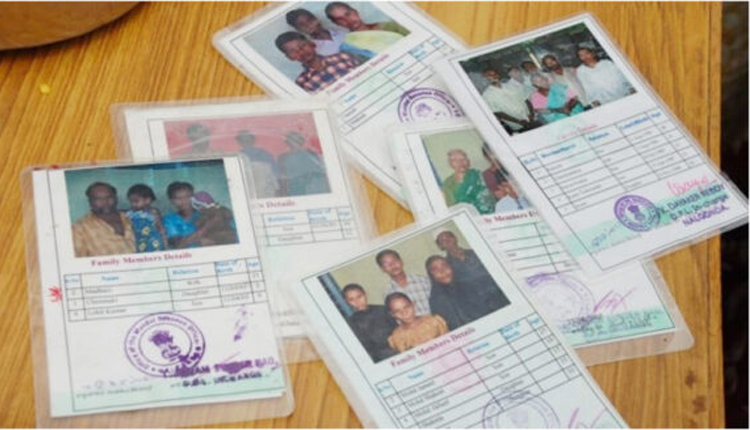New Delhi: In the past¸ there was a problem of misusing the public distribution system ( PDS ) in India, where counterfeit ration cards were used to get discounted goods. To tackle this issue¸ the government implemented digitalization, in the PDS, which has guaranteed that 80. 6 Crore ( 806 million ) individuals now get their rations without any errors.
The government introduced Aadhaar integration and eKYCl measures to combat ration cards effectively Only authentic recipients can now avail of the rations As of now 58 million fake ration cards have been invalidated guaranteei ng that the deserving receive assistance, from the program
During the update process, for the system upgrade project 204 million ration cards have been converted to format. Almost all of them (99.%%) are connected to Aadhaar while 98.% of recipients have finished the biometric verification process.. This guarantees that only legitimate individuals receive their rations.. Additionally than 533000 Point of Sale (ePo S.) machines have been rolled out across the country improving transparency by using Aadhaar for beneficiary verification during ration distribution..
64 percent of beneficiaries have already undergone eKYD verification processes successfully while ongoing efforts are being made to finalize the remaining verifications, with improved simplicity and enhanced security measures to minimize any inconvenience, for the beneficiaries.
In todays world of technology advancements such, as real time tracking systems are employed to oversee the distribution and delivery of supplies effectively and efficiently to prevent any delays or errors, in management.
One major change, in the reform allows people receiving rations to get them from any state in the country now.Yes portable ration cards have been a help, to workers as they can now receive their rations no matter where they are.
The changes implemented have enhanced the transparency and dependability of the Public Distribution System (PDS) effectively eliminating corruption and guaranteeing that only rightful recipients receive their allotted provisions.
The digital transformation, in Indias public distribution system guarantees access, to food supplies.
In a step, toward tackling the problems of corruption and inefficiency in the Public Distribution System (PDS) the Indian government has introduced extensive digital changes. Previously faced with challenges like widespread counterfeit ration cards abuse the PDS now stands as a symbol of openness and effectiveness by guaranteein 806 million beneficiaries access, to their provisions.
The integration of Aadhaar and eKYC has played a role in this transformation by ensuring that only legitimate beneficiaries can avail subsidized food grains services successfully while deactivating 5.. Million ration cards so far to assist numerous families who are genuinely needy. Around 20..million ration cards have been digitally processed with all of them (99.% percent ) being linked to Aadhaar for authentication purposes. Additionally 98.% percent of beneficiaries have undergone biometric authentication processes which have significantly enhanced the systems security and reduced the risk of activities.
The use of 533000 ePoSS ( Point of Sale systems, by the government enhances transparency at the level by verifying Aadhaar linked identities during ration distribution while also ensuring speed and security of the process The eKY verification, for 64 percent of beneficiaries has been completed successfully with ongoing efforts to include the remaining individuals.
Advanced technology is used to track the transportation and distribution of rations in time to ensure that food grains are delivered to the destination promptly and without any misuse or delays.
One key aspect of these reforms focuses on putting people by enabling the transferability of ration cards a significant change that enables individuals to receive their allocated rations from any part of the country they are, in.This policy has proven to be vital, for laborers as it empowers them to avail their entitled benefits no matter where they may be situated.
Through these efforts and changes, in place at the PDS system has experienced a shift, in its operations.Most of the issues related to corruption and inefficiency have been addressed effectively to ensure that the advantages of the program reach those who require assistance the most.As a result of these improvements the system that was once plagued with problems now serves as an example of openness and responsibility.



Comments are closed.